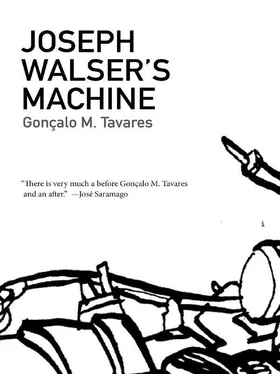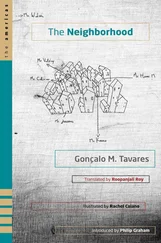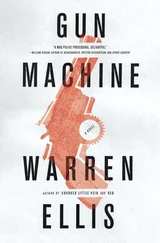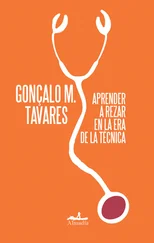Joseph Walser is starting to get nervous: he’d had an accident, a significant accident, they have to pay attention to him, but the sounds of the nurses aren’t close enough for the attention he requires. He, Joseph Walser, had a serious accident, at work, with his machine; they should respect that.
“They don’t hear anybody,” says his roommate.
“I’ve spent hours calling out to them,” the roommate says later, and then abruptly bursts into laughter.
“Hours!” he repeats.
Walser screamed as loud as he could. Then stopped. He remembered the scream he let out at the moment the accident occurred. This more recent scream was similar, with just one difference: it was planned, thought out in advance, a strategic scream, as opposed to the other one; it was a false scream, he realized. I’m not in any pain: that was a false scream.
But Walser didn’t feel uneasy about this momentary falsehood; the fact that he realized what he was doing didn’t stop him from repeating the action. He screamed again, as loud as he could, as if he were in need of urgent care.
He grew more annoyed by the minute. His roommate’s outburst of laughter had stopped, but, despite Walser’s clamoring, there was no change in the background noise out in the hallways.
He stood up, swung his legs over the edge of the bed, and, with his left hand on the bed for support, stepped down onto the floor. He was barefoot and was hiding his right hand behind his back. The feeling of the cold floor under his feet hit him with a concrete, sensual violence, which he was almost relieved to feel: he was tired of feeling the world through sound alone.
The shiver that shot up from his feet soon subsided. The human organism is an absolutely flawless machine that reacts immediately: intelligent enough to sense changes in temperature.
He took a cautious step first, then another one, and his feet heated up the cold floor beneath them, or vice versa. At least I’m not wearing irresponsible shoes, thought Walser, almost cracking a smile.
He was now at the doorway to the room. He walked forward a little bit more and saw, about thirty feet away, two nurses and a doctor. This time he called out to them with much more self-control, almost embarrassed: “Nurse!”
But it was the doctor who walked over to him.
Klober the foreman looked Fluzst over from head to toe, and a wide grin appeared on his face, which was soon cut short by a return to seriousness.
“Looks like the city was entitled to one more attack,” said Klober.
Fluzst nodded in assent, and Klober went on in the same ironic tone with which he had begun:
“This only proves that we are an important city. A city! No one would ever think about planting a bomb in the countryside, in the middle of a bunch of pigs,” he said laughing.
“This is proof of the advent of civilization: we have libraries and bomb attacks. But our bombs aren’t arriving as neat packages delivered by the army; disorder has affected even our weapons and has spread to the crudest and least intellectually capable segment of the population; and thus the danger grows. Disorder and weaponry aren’t compatible, in my humble opinion, and killing isn’t purely an action, it also requires some intellectual ability. But what have you got to say about all this, Fluzst, you’ve got a frightened look on your face, you’ve just come from the area where the bomb went off …
“You probably didn’t see anything, is that right? That’s what I thought. We’re all blind. A city full of blind people. But we’ve still got good ears, perfectly effective auricular devices. In other words, some parts of the city are still functioning. My dear Fluzst, I must bid you good-bye. I want to see what happened up close. I, too, have the right to be frightened. It’s odd seeing you like this, on such an important day. You are one of our liveliest workers, don’t go losing all that energy now, we’re counting on you. All right, I’ll see you tomorrow, won’t I?
“Oh, I forgot to tell you something. An important piece of information: your coworker Joseph Walser had an accident with his machine. He’s in the hospital. I know you two are good friends. He would certainly appreciate a visit from you. Have a good one, Fluzst — and pull yourself together. We’re counting on you.”
“Doctor,” said Walser, still hiding his right arm against the side of his body, “I’m sorry, but I’ve been calling for a nurse for quite some time.”
The doctor didn’t respond. He looked steadily at Walser.
“What’s your name?”
“Joseph Walser.”
“Joseph Walser,” repeated the doctor. “Well then, Mr. Walser, please behave yourself. You’re in a hospital!” said the doctor, turning his back on him.
A nurse came over to him.
“This isn’t a time for weakness, my dear sir. What happened to you is child’s play. You’d be doing a big favor to all of us if you would just behave like a man.”
Joseph muttered something and felt his face turn ruby-red.
“Go back to your bed,” said the nurse, “when someone becomes available they’ll attend to you and get your papers in order so you can leave. Please go back to your room.”
Fluzst entered his house in a hurry and immediately locked the door, turning the lock three times. His wife, Clairie, ran over to him.
“What happened?”
Fluzst didn’t respond and headed toward the bathroom.
“Bring me alcohol and make these clothes disappear.”
He took off his clothes.
“Everything’s fine. I’m going to take a bath. Pick up all these clothes and burn them.”
“Are you hurt?”
“Don’t be stupid. Do as I say.”
With his wife at his side, Joseph Walser walked into his house. His gestures were cautious, succinct, and completely restricted to his left hand. He kept his right arm at his side, no matter what position his body happened to be in, and he held his right hand, shamefully, behind his back.
Even though he’d only been away for a day, that absence made it so that he entered this familiar space as though he had suddenly recovered a lost memory. He looked at the desk where he kept the key to his study.
“Do you want to be alone?” asked Margha.
Joseph Walser didn’t respond. He walked straight over to the key, grabbed it with his left hand, and used the same hand to open the door. In the meantime, his wife backed away from him.
Joseph Walser stepped into his study; the customary noise of the lock as it was locked from the inside. Margha sat down; she cried.
Joseph Walser stood before his collection. He felt comforted: everything in its place. Countless pieces of metal were arranged in an orderly fashion on over fifty shelves. And below each one was a label with a corresponding number. On the desk, directly across the room from the door, there was a notebook with a black cover, and beside it a gray, shiny ruler.
Walser had started his collection eight years earlier. He picked up any piece of metal he could find, but with two restrictions: they had to be solitary pieces, not connected to anything else — thus, unattached to any other components; and each of the dimensions of the piece — length, height, and width — had to measure less than four inches.
The sight of his perfectly organized collection was oddly comforting to him, given that it had only been one day since his accident. He smiled: with his left hand he searched around in his coat pocket for the metal object he had brought home from the hospital. It was the round wheel guard from one of the stretchers. It had come loose and fallen on the floor, and Walser had snatched it up.
Читать дальше












